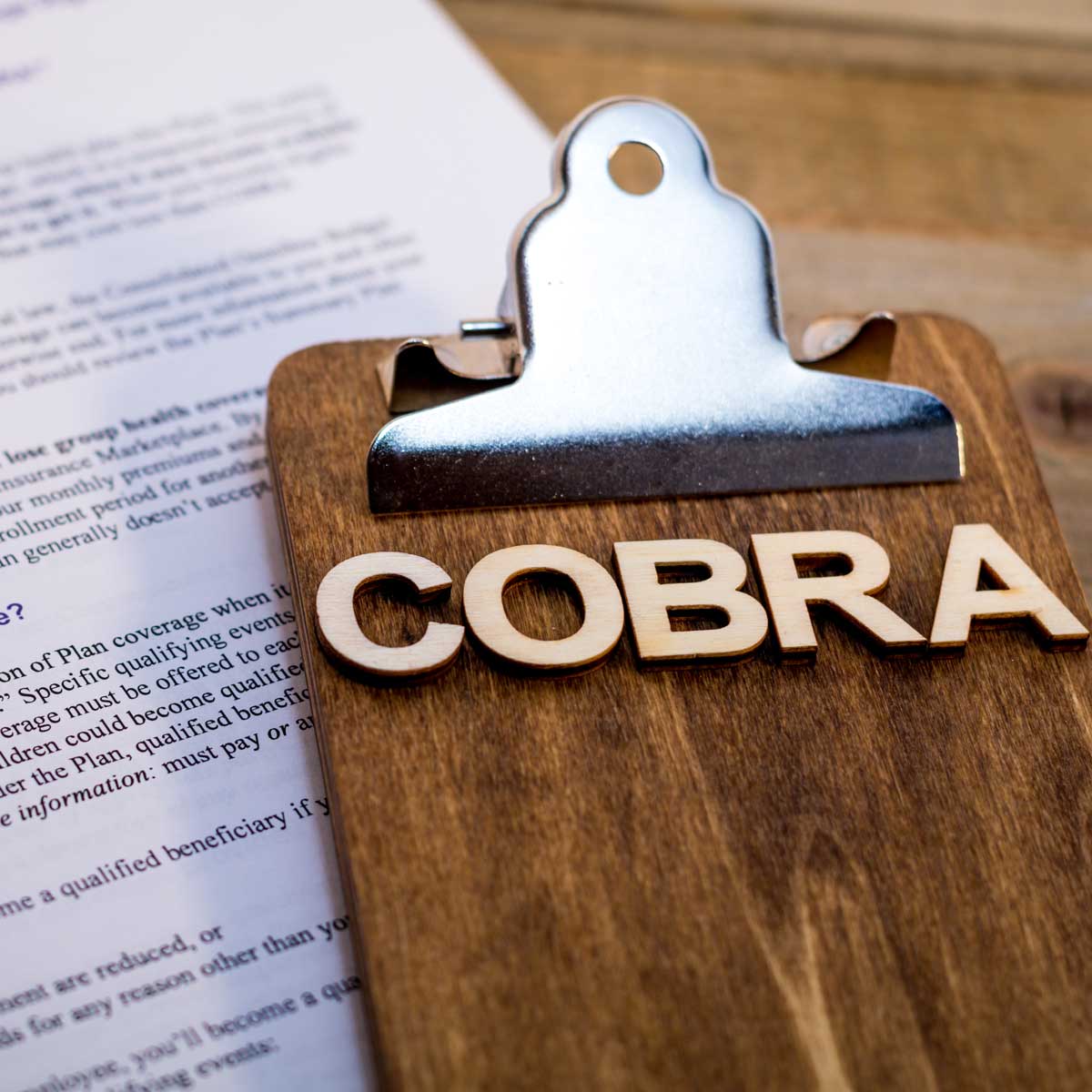This website uses cookies so that we can provide you with the best user experience possible. Cookie information is stored in your browser and performs functions such as recognising you when you return to our website and helping our team to understand which sections of the website you find most interesting and useful.
COBRA Subsidy with No Premium Under the American Rescue Plan

When the Administration passed the American Rescue Plan (ARP), it released new rules about Consolidated Omnibus Budget Reconciliation Act of 1985 (COBRA) benefits, too. The bill provides that “assistance-eligible individuals” qualify to receive a 100% subsidy for COBRA insurance premiums for any period of COBRA coverage from April 1, 2021 through September 30, 2021. Let’s dive into the impact this has on employees and employers:
Who is eligible?
An assistance-eligible individual is an employee that qualifies for and elects COBRA coverage due to involuntary termination of employment or a reduction in working hours. If an employee was receiving medical coverage from a group health plan but lost that coverage due to a termination of employment (theirs or their family member’s), they qualify for COBRA.
While eligible individuals must have maintained coverage under a group health plan in compliance with federal or state COBRA regulations, employees with self-funded plans also qualify. Multi-employer, governmental employer and union-sponsored plans are considered eligible coverage, as well. Plan sponsors of self-funded plans must claim the subsidy as a payroll tax credit.
All eligible participants can receive this health insurance coverage at no cost, while employers may be eligible for a COBRA premium assistance credit for the coverage.
According to the IRS, nonqualifying individuals include those that are eligible for other group health coverage through a new employer or spouse’s plan, those receiving Medicare, employees whose job loss was voluntary and employees whose job loss was the result of gross misconduct.
How do employees apply for the assistance?
Under the ARP, plan sponsors are obligated to provide information about the subsidy for COBRA insurance premiums to employees with medical plan coverage through the employer. This information includes forms to apply for the COBRA benefits. If you are a plan sponsor, make sure you provide eligible employees the following information and documents per the IRS:
- General notice for qualified beneficiaries
- Notice of extended COBRA election period
- Notice of expiration periods
- Forms to establish eligibility for the premium assistance
- Plan administrator contact information
- Necessary descriptions of requirements
Model notices can be found here.
How are employers affected?
Employers with terminated employees (or those with reduced hours) over the last 18 months, approximately, will see a significant financial impact. According to the IRS, the entire amount of the COBRA coverage premium must be paid by the employer (as of April 1, 2021). If an employee pays the premium during the subsidy period, the employer is responsible for reimbursing the employee. However, employers can seek reimbursement through the payroll tax credit mentioned above or a refundable credit in the case that the premiums are higher than the payroll tax obligation.
How long does the subsidy last?
The non-taxable, full reduction in the premium is offered for up to six months. Eligible individuals can apply to extend this length of time.
For guidance and to speak to our experts about the ARP and its new COBRA benefits, please contact our team. You can find additional details on the COBRA subsidy here: Frequently Asked Questions; IRS Notice 2021-31.
This publication contains general information only and Sikich is not, by means of this publication, rendering accounting, business, financial, investment, legal, tax, or any other professional advice or services. This publication is not a substitute for such professional advice or services, nor should you use it as a basis for any decision, action or omission that may affect you or your business. Before making any decision, taking any action or omitting an action that may affect you or your business, you should consult a qualified professional advisor. In addition, this publication may contain certain content generated by an artificial intelligence (AI) language model. You acknowledge that Sikich shall not be responsible for any loss sustained by you or any person who relies on this publication.




